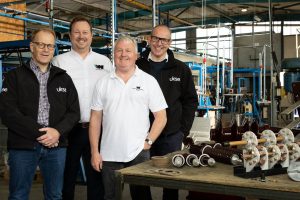Rotala has stronger H1 but warns coach business is still tough

BUS and coach operator Rotala saw further expansion in the first half despite difficult markets but has warned that in such a volatile climate growth predictions are difficult to determine.
The Birmingham group, which operates the Flights Coaches business and last year acquired Preston Bus Ltd (PBL) in a deal worth £3.2m, said the squeeze on local authority contracts had had a bearing on business but generally it was pleased.
Turnover during the period to May 31, 2012 rose 7% to £28.5m (2011: £26.6m), while pre-tax profit rose 4% to £0.96m (2011: £0.92m).
John Gunn, Rotala chairman, said: “Rotala is the number two bus operator by market share in both the West Midlands, where we operate under the ‘Diamond Bus’ banner, and Bristol, where we operate as ‘Wessex Connect’. The West Midlands remains the second largest bus market in the country after London. We are moreover one of the leading providers of private bus networks in the country, especially to the aviation industry in the South East.”
Net debt declined 20% over the period to £16.1m (2011: £20.1m), while the interim dividend increased 25% to 0.50p per share (2011: 0.40p).
In its interim statement the firm said: “Despite the adverse economic headwinds on all fronts and the sustained contraction in the UK economy, the group has continued to expand during the first half of this year when compared to the same period in 2011.”
It said it could not understate the challenges which faced the group, in common with other bus operators.
“The public announcements of our competitors make clear the difficulties that the Government’s austerity measures are creating for the bus industry. The erosion of subsidy for services contracted to local authorities, the reduction in payments for concessionary fares and the 20% cut in the fuel tax rebate inherent in the Bus Services Operators’ Grant have this year, taken together, changed in a major way the operating characteristics of the bus industry,” it added.
“Bus fares have had to rise in recognition of these increased costs. Some route mileage has had to be trimmed back because it was no longer profitable. Inevitably the rising cost of bus travel is holding back passenger growth, which does seem a bizarre policy outcome when there is so much government focus on getting people out of their cars and onto public transport.”
Fuel remains a significant cost to the business. The group now uses around 11m litres of fuel per annum. It said in the period under review the price of fuel had continued to be volatile and an average price of about 113p per litre was paid. This gave rise to an adverse variance of about £250,000 against the budgeted cost of fuel.
However, it said in the early summer it had been able to take advantage of the dip in diesel prices and hedge diesel needs until July 2013. This means the group has fixed the price for around three-quarters of its fuel needs at 108p per litre, less than budgeted for.
In outlook, Mr Gunn said: “Considerable changes are in process in the bus industry, with many of these stemming from the withdrawal of Government support. This means an extended phase of volatility and instability in the sector, which is unsettling for all participants.
“We have managed to cope with these changes as a result of much hard work and application of operational expertise, but the trading environment continues to be challenging and one in which it is difficult to make strategic choices.”
Nevertheless, he said the group had a solid financial base and was optimistic for the remainder of the year. Acquisition opportunities may present themselves in the current market conditions, he added.









